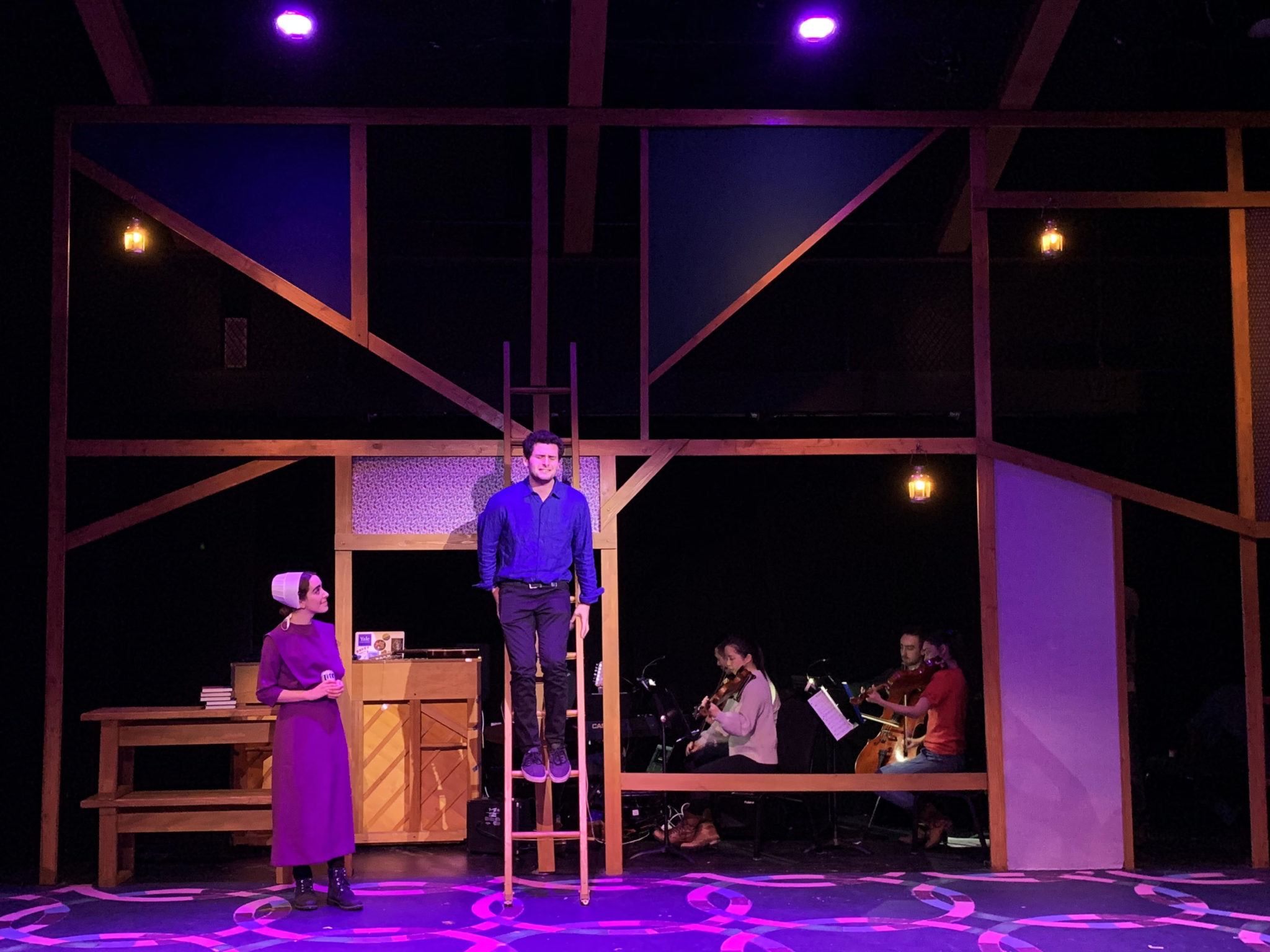
Emily Tian
The student cast of “Rumspringa” will don aproned dresses, suits and trousers in this weekend’s production as they transport audiences to Lancaster County, Pennsylvania.
The show, with performances on Dec. 6, 7 and 8, will be held in the Whitney Theater. Scott Etan Feiner ’20 and Walker Caplan ’20 are putting up the show as their senior project in Theater Studies.
The original musical follows Rose, a teenage Amish girl, as she enters the years of her rumspringa — a coming-of-age period when community rules of conduct are relaxed in order to expose Amish youth to alternative lifestyles. For the Amish, who practice Anabaptism, teenagers must decide for themselves whether they wish to commit to the Amish faith and community, and these questions underpin the show’s central tension.
“Rumspringa” is only the third original musical produced through the Shen Curriculum for Musical Theater’s production seminars. Many other student-led shows are coordinated by extracurricular organizations like the Yale University Dramatic Association. Feiner and Caplan, as well as the show’s cast and production team, have met every Friday in class with professor Annette Jolles, the show’s director, to research and prepare for this weekend.
Although this seminar has spanned the course of the semester, Feiner and Caplan began discussing ideas and initial drafts with Jolles over a year ago. The show has evolved greatly since, which has created both unique challenges and opportunities for Natasha Partnoy ’22, who plays Rose.
“I’ve been able to have a lot more input than I would have if this show was just frozen,” Partnoy said. “It feels like as I’ve grown up, this character has, too.”
Feiner, a prolific lyricist and composer, was drawn to the idea of writing an original musical after watching another student-written musical three years ago.
“It’s a Yale composer’s dream to write a show and have both academic and extracurricular resources dedicated to it,” he said.
Both Feiner and Caplan have robust experience with theatrical productions. The duo collaborated two years ago on another original musical, “Saturdays,” which was performed at the New York Musical Festival following its debut at Yale.
Jolles said for the musical to be incorporated into the curriculum of a seminar, it must have “an academic component that’s worth considering in a class, whether a research based element or another area of study and dramaturgy.”
Feiner and Caplan read extensively and watched documentaries about the Amish. The class also hosted Donald Kraybill, a preeminent scholar of Anabaptist groups. Kraybill’s insights further illuminated the Amish experience and guided revisions of the script, motivating character name changes to more accurately reflect Amish communities. For Partnoy, the fusion of academic research with a creative theatrical process has been “not only an artistically rewarding but also intellectually rewarding experience.”
“When you’re dealing with a culture, you want to be respectful,” Jolles said. “You want to be honest. You want to fairly represent it.”
Questions of faith and spirituality perennially resurface onstage, but Feiner emphasized that this musical is no “Book of Mormon.”
“It would be easy to make fun or condescend the tradition from a place of not really understanding it,” Feiner said. “Neither of us were really interested in doing a bad broad comedy making fun of or denigrating a religion that is deeply important to an increasingly growing body of the American population.”
Feiner and Caplan recognized the potency of a bildungsroman set in a community-oriented faith, particularly in a modern society dominated by individualism.
“Instead of prioritizing individual success, [the Amish] prioritize the success of family units and neighborhoods in pursuit of a higher purpose,” Caplan said. “Of course it’s applicable to a writing room or rehearsal room because it’s not about who has the best vision, but everyone coming together to make something larger than yourself.”
The careful research foregrounding this interpretation of a Lancaster Amish community does not strip it of its creativity. The austere set and material simplicity belie the thoughtful complexities exhibited by the show’s vibrant score. The actors’ voices in harmony is, if not transcendent, deeply humane.
The Whitney Theater is located in the Whitney Humanities Center at 53 Wall St.
Emily Tian | emily.tian@yale.edu







